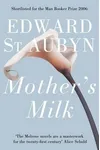Picture a British storyteller who turned a harrowing childhood into a literary masterpiece—meet Edward St. Aubyn! Born in 1960, this acclaimed novelist is best known for his semi-autobiographical Patrick Melrose series, a razor-sharp exploration of trauma, addiction, and redemption. With a wit as sharp as his prose, St. Aubyn has captivated readers and critics alike, earning a Booker Prize nomination and a place among Britain’s literary elite.
St. Aubyn’s journey from a troubled upbringing to literary stardom is as compelling as his novels. His ability to weave personal pain into universal stories has made him a voice for resilience, proving that even the darkest experiences can inspire art that resonates.
The Making of Edward St. Aubyn
Edward St. Aubyn was born in London to an aristocratic family, with ties to the St. Aubyn baronetcy. His early life was marked by profound trauma; from ages five to eight, he endured sexual abuse from his father, a surgeon, with his mother’s complicity. Raised between London and France, St. Aubyn’s privileged yet dysfunctional upbringing shaped his worldview. He attended Westminster School and later Keble College, Oxford, graduating despite a heroin addiction that plagued his youth. Writing became his salvation, a way to process pain and reclaim his narrative.
By his mid-20s, St. Aubyn entered psychotherapy and began his literary career. His debut novel, Never Mind, published in 1992, introduced the world to Patrick Melrose, a character whose struggles mirrored St. Aubyn’s own, setting the stage for a groundbreaking series.
Edward St. Aubyn’s Unforgettable Stories
The Patrick Melrose series—comprising Never Mind, Bad News, Some Hope, Mother’s Milk, and At Last—is St. Aubyn’s crowning achievement. These novels follow Patrick Melrose, a young aristocrat grappling with childhood abuse, heroin addiction, and the search for meaning. Never Mind depicts a chilling day in Patrick’s abusive childhood, while Bad News captures his drug-fueled spiral in New York. Some Hope offers glimmers of recovery, Mother’s Milk (shortlisted for the 2006 Booker Prize) explores parenthood, and At Last concludes with Patrick’s quest for closure.
St. Aubyn’s prose is a masterclass in precision and wit, blending biting social satire with deep emotional insight. His themes—trauma, addiction, and the hollow privilege of the upper class—resonate universally, earning praise from literary giants like Zadie Smith and Michael Chabon. Beyond the Melrose series, St. Aubyn’s Lost for Words (2014) is a hilarious satire of literary awards, while Dunbar (2017) reimagines King Lear, showcasing his versatility.
The 2018 TV adaptation of the Patrick Melrose series, starring Benedict Cumberbatch, brought St. Aubyn’s work to a wider audience, earning BAFTA awards and critical acclaim for its unflinching yet humane portrayal of Patrick’s journey.
Why Edward St. Aubyn Matters
Edward St. Aubyn’s impact lies in his fearless exploration of pain and healing. His novels offer a roadmap for transforming personal trauma into art, inspiring readers and writers to confront their own struggles. By dissecting the British upper class with surgical precision, he exposes its hypocrisies, making his work both timeless and socially relevant. His influence extends to contemporary literature, where his blend of raw honesty and elegant prose sets a high bar.
St. Aubyn’s legacy is one of resilience and reinvention. His ability to find humor and hope amidst darkness has cemented his status as a literary icon, encouraging others to find strength in storytelling.
- Born: January 14, 1960, London, England
- Key Works: Patrick Melrose series, Lost for Words, Dunbar
- Awards: Betty Trask Award (1992), Prix Femina Étranger (2007), South Bank Show Award (2007)
Ready to dive into Edward St. Aubyn’s world of wit and wisdom? Grab Mother’s Milk or the Patrick Melrose series and experience his unforgettable storytelling!







